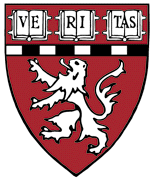|
| ||
 |
An Export Case Study Part One |
See also:
Healthcare: An Export Case Study -- Part Two
Healthcare: An Export Case Study -- Part Three
trategy springs from the recognition of situational changes and potential threats coupled with the problems and opportunities presented by these shifts. Strategy seeks to purposefully develop and deploy our unique strengths in ways to counter potential threats and to exploit emerging opportunities. Harvard Medical International offers a preeminent paradigm of strategic response and initiative worthy of study by any enterprise.
S In the early 1990s, fundamental -- and confusing -- changes were occurring throughout the healthcare industry both in the United States and around the world. The exceedingly high costs of healthcare in the US were fomenting consumer dissatisfactions leading to the startling growth of "more efficient" corporate-owned medical centers, hospital chains and acquired physician group practices. "Managed healthcare," "HMOs," "physician productivity" and "cost containment" were heard in the cacophony of popular buzzwords. Ceilings and other pressures were imposed upon physician compensation and even declines in the total population of physicians were forecast. Healthcare appeared to be changing from a collegial professional practice into a tightly-controlled "industrial process."
Simultaneously, seismic political changes were leading to a curtailment of Federally-funded medical research programs. The stratospheric costs of excellent healthcare in the US priced these services beyond the reach of all but the wealthiest patients from other nations. And the quality of indigenous healthcare in an increasing number of nations more often approached the standards available in the US. The fashionable practice of the rich and famous seeking critical healthcare at prestigious American medical centers was threatened.
The President and Fellows of Harvard College laid the plans for a school of medicine in September of 1782. Over the span of more than two centuries, the Harvard Medical School has earned global recognition as a center of medical education and research. Harvard Med is considered to be No. 1 both within the medical profession as well as in popular rankings.1 A significant portion of its students, faculty and research associates have long been drawn from every corner of the earth. "International" has always been part of the vocabulary at 25 Shattuck Street in Boston.
The Medical School was attentive to these changes occurring in the early 1990s, and was aware that "business as usual" was quickly to become a losing strategy. In assessing the global marketplace for superior healthcare and matching these emerging needs with its formidable strengths, one particular phenomenon was unique.
In contrast to almost every other major medical school, the Harvard Medical School does not have its own hospital nor have a singular affiliation with any major hospital. Rather, the School has primary teaching and research affiliations with 17 eminent hospitals and institutions in greater Boston offering a full spectrum of world-renowned medical specializations. Thus, the School has no responsibility to assure a full bed count in its own hospital; there is no inducement to aggressively attract foreign patients in an effort to fill the beds in its own hospital. This independence was seen to be an irrefutable assurance that its healthcare services could be fully objective, free of any possible taint of economic motivation.
In the midst of all this professional tumult during the early 1990s, severe economic pressures were forcing the American medical community to pioneer cost-effective ways of delivering quality healthcare. American medicine continued to dazzle the world with advanced medical/surgical procedures and technologies; however, the introduction of streamlined healthcare delivery systems without compromising the quality of patient care was a triumph of equal significance. The Medical School focused upon this combination of medical, technological and managerial achievements where American medicine has some unique services to offer partners around the world.
In response to these situational changes and potential threats coupled with the problems and opportunities presented by these shifts, Harvard Medical International, Inc. (HMI) was established in late 1994 as a non-profit subsidiary corporation of the Harvard Medical School. Its mission is to respond to increasing requests from around the world to develop and manage indigenous healthcare facilities, provide exceptional medical education, and organize biomedical research programs in host nations. Robert K. Crone, MD, President and Chief Executive Officer of HMI, explains, "Our aim is to extend the Medical School's mission beyond the boundaries of the U.S. We have the opportunity of impacting the quality of healthcare through partnerships with key entrepreneurial institutions around the world."
The continued examination of the ways in which HMI has implemented this innovative export strategy will be the focus of our subsequent columns.
_______
1 See, e.g., U.S. News & World Report, March 10, 1997.
Harvard Medical International, Inc.
One Renaissance Park
1135 Tremont Street
9th Floor, Suite 900
Boston, MA 02120Telephone: (617) 535-6400 -- FAX: (617) 535-6410
Elizabeth_Sylvester@hms.harvard.edu
Email:
Your comments and suggestions for these pages are most welcome!
Thomas A. Faulhaber, Editor Email: editor@businessforum.com
Telephone: 617.232.6596 -- FAX: 617.232.6674
Brookline, Massachusetts 02446.2822 USAconsult@businessforum.com
URL: http://www.businessforum.com/hmi01.html
Revised: December 7, 2003 TAF
© Copyright 1997, 1999, 2001, 2003 Thomas A. Faulhaber / The Business Forum Online®, All Rights Reserved.